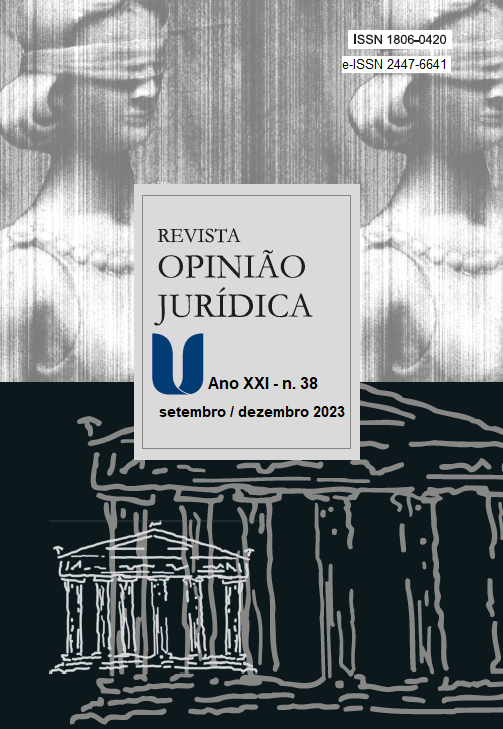THE SUITABILITY OF RESCISSORY LAWSUITS DUE TO NON-COMPLIANCE TO BINDING JUDICIAL-RULING
DOI:
https://doi.org/10.12662/2447-6641oj.v21i38.p18-44.2023Keywords:
rescissory lawsuit, coherence, law, precedents, legal certaintyAbstract
Contextualization: The rescission lawsuit is an appropriate measure against a final and unappealable court decision that manifestly violates a legal rule, thus, it is necessary to question whether the non-compliance with the precedent gives rise to the propose of the rescission lawsuit, since the precedents change the interpretative core of the legal rule.
Objective: The objective of this article is to postulate a hypothesis of the suitability of the Rescissory Action in the light of the objectives set by the Civil Procedure Code of 2015 ("CPC"), explained in its article 926, of maintaining a stable, integrity and legal system coherent.
Method: This study was conducted by reviewing legislation, as well as national and international doctrine, using the deductive method.
Results: The concern of the theme is not only of a topical nature, about isolated cases, but it is given as a logical reflection of a legal system that wants to be coherent, stable and harmonious, as recommended in CPC of 2015.
Conclusions: Finally, it was seen that there is normative scope of the procedural rules already set so that the conclusion is forwarded by the appropriateness of the rescission actions for the protection of the coherent, stable and complete right, due to the non-observance of a binding judicial pronouncement, provided that the established deadlines are observed.
Published
How to Cite
Issue
Section
License
Copyright (c) 2023 Revista Opinião Jurídica (Fortaleza)

This work is licensed under a Creative Commons Attribution-NonCommercial-ShareAlike 4.0 International License.
CESSION OF COPYRIGHTS
The submission of articles to analysis for publication on Opinião Jurídica implies the author(s) transfers copyrights to Centro Universitário Christus – UNICHRISTUS for reproduction, publicizing, distribution, printing and publication, according to the Publication Norm 414R, Opin. Jur., Fortaleza, year 12, n. 16, p.1-414, Jan./Dec. 2014, costs to be bore by UNICHRISTUS, in whatever format or means that may or shall exist, in accordance to articles 49 and following of Federal Law 9.610/98.
1. In ceding copyrights, the author(s) agrees to do so in exclusivity, free of charge and for the totality of the work.
2. UNICHRISTUS may make the work, in its entirety or in parts, available for scholarly purposes, without altering its contents, except for small corrections that are deemed necessary.
3. The cession of copyrights is valid in all countries and for versions of the material in its original language or translated into a foreign language.
RESPONSIBILITY FOR THE CONTENT
By submitting an article, the author(s) declare to have sole responsibility for the content of the piece and is(are), therefore, responsible for any judicial or extrajudicial measures referring to it.
1. In case of joint authorship, all authors are considered collectively responsible, except when proved otherwise.



















